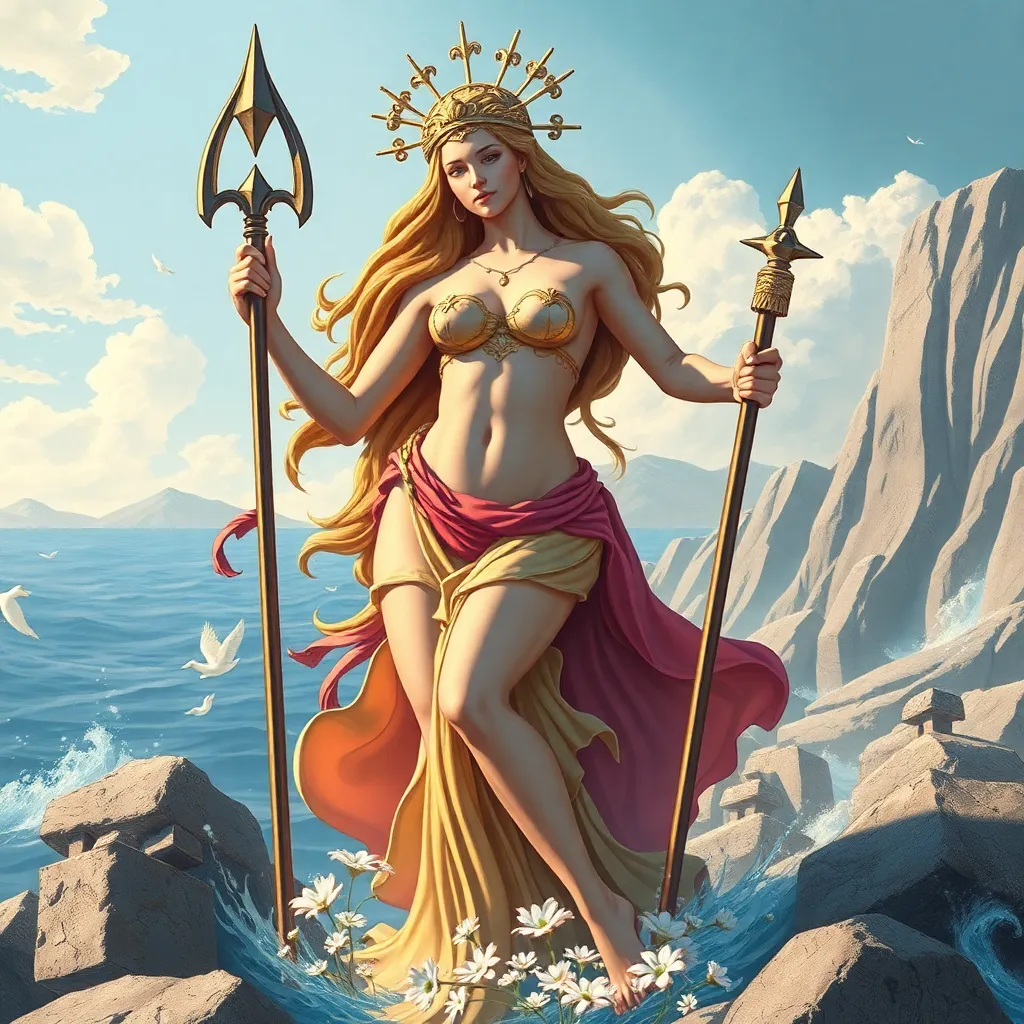The Myths of Aphrodite and the Argonauts: Love and Adventure
I. Introduction
Greek mythology has profoundly influenced literature and culture throughout history. Its rich tapestry of gods, heroes, and epic tales continues to resonate in modern storytelling. Among the most captivating figures in these myths are Aphrodite, the goddess of love, and the Argonauts, a band of heroes led by Jason on a quest for glory.
This article aims to explore the intersection of love and adventure in the myths surrounding Aphrodite and the Argonauts. By delving into their stories, we can uncover the themes of desire, heroism, and the complexities of relationships that define these enduring legends.
II. Aphrodite: The Goddess of Love
Aphrodite is one of the most prominent deities in Greek mythology, representing not only love but also beauty, desire, and fertility. According to myth, she was born from the sea foam, emerging near the island of Cyprus, a symbol of her beauty and allure.
Her attributes include:
- Beauty: Often depicted as the epitome of physical attractiveness.
- Desire: Embodying the powerful force of attraction.
- Fertility: Representing the generative aspects of love.
Key myths associated with Aphrodite include her relationships with other gods and mortals, most notably with Ares, the god of war, and her role in the Trojan War, where she promised Paris the love of Helen, leading to the conflict between the Greeks and the Trojans.
Aphrodite’s presence in Greek society was significant, as she represented the duality of love—both its joys and its tumult. She was worshipped in various forms, often symbolizing the complexity of human relationships and emotions.
III. The Argonauts: Heroes of Greek Mythology
The Argonauts are legendary heroes known primarily for their quest for the Golden Fleece, a symbol of authority and kingship. Led by Jason, the crew included numerous notable figures, such as Heracles, Orpheus, and Atalanta, each bringing unique skills and talents to the journey.
The quest for the Golden Fleece was filled with challenges, including:
- Encounters with mythical creatures like the Harpies and the dragon guarding the fleece.
- Tests of courage and strength, showcasing the Argonauts’ heroism.
- Trials that required cleverness and teamwork to overcome various obstacles.
This adventure not only highlighted the physical prowess of the Argonauts but also their camaraderie and the bonds formed during their perilous journey.
IV. The Relationship between Aphrodite and the Argonauts
Aphrodite plays a crucial role in the quest for the Golden Fleece, particularly through her connection to Jason and Medea. When Jason seeks the fleece, it is Aphrodite who influences Medea, the daughter of King Aeëtes, to fall in love with him and assist him in his quest.
Key interactions include:
- Aphrodite’s granting of love and protection to Jason.
- Medea’s assistance, which is motivated by her love for Jason, showcasing how divine influence intertwines with human emotion.
The impact of love on the adventures of the Argonauts is profound. It drives characters to make choices that not only affect their fates but also the outcomes of their epic quest.
V. Love as a Driving Force in the Myths
Romantic relationships among the Argonauts add depth to their adventures. Jason’s relationship with Medea is central; her love leads her to betray her family and assist Jason in ways that alter the course of their journey.
Love serves as a powerful motivator for heroic deeds, illustrated by:
- The sacrifices made by Medea for Jason’s success.
- The bonds of friendship and loyalty among the Argonauts, as seen in their willingness to support one another in times of peril.
However, love also breeds conflict. Medea’s jealousy and rage following Jason’s betrayal highlight the darker aspects of love, showcasing its potential to drive individuals to vengeance and despair.
VI. Misinterpretations and Misconceptions
Common myths surrounding Aphrodite and the Argonauts often lead to misunderstandings about their stories. One prevalent misconception is that Aphrodite’s role is solely that of a romantic figure, overshadowing her influence as a powerful goddess who shapes events through her will.
Over time, these myths have evolved through retellings in literature and art, often emphasizing certain traits or narratives while neglecting others. Distinguishing between myth and historical interpretations can be challenging, as many stories have been adapted to reflect contemporary values and beliefs.
VII. The Legacy of Aphrodite and the Argonauts
The legacy of Aphrodite and the Argonauts extends into modern literature, art, and popular culture. Their stories have inspired countless adaptations, from classical works to contemporary novels and films.
Notable influences include:
- Literary retellings, such as in the works of Euripides and Apollonius of Rhodes.
- Modern adaptations in films and series that reimagine their adventures and relationships.
- Thematic explorations of love and heroism in various media, reflecting the enduring appeal of these myths.
The themes of love and adventure resonate strongly in storytelling, as they address fundamental human experiences that continue to captivate audiences.
VIII. Conclusion
In summary, the myths of Aphrodite and the Argonauts illustrate the intricate interplay between love and adventure in Greek mythology. Through their stories, we see how love can inspire heroic deeds, forge bonds, and lead to conflict.
The significance of these myths lies not only in their entertainment value but also in their exploration of complex human emotions and relationships. The impact of Aphrodite and the Argonauts on modern understandings of heroism and love remains profound, reminding us of the timeless nature of these themes in our own lives.




